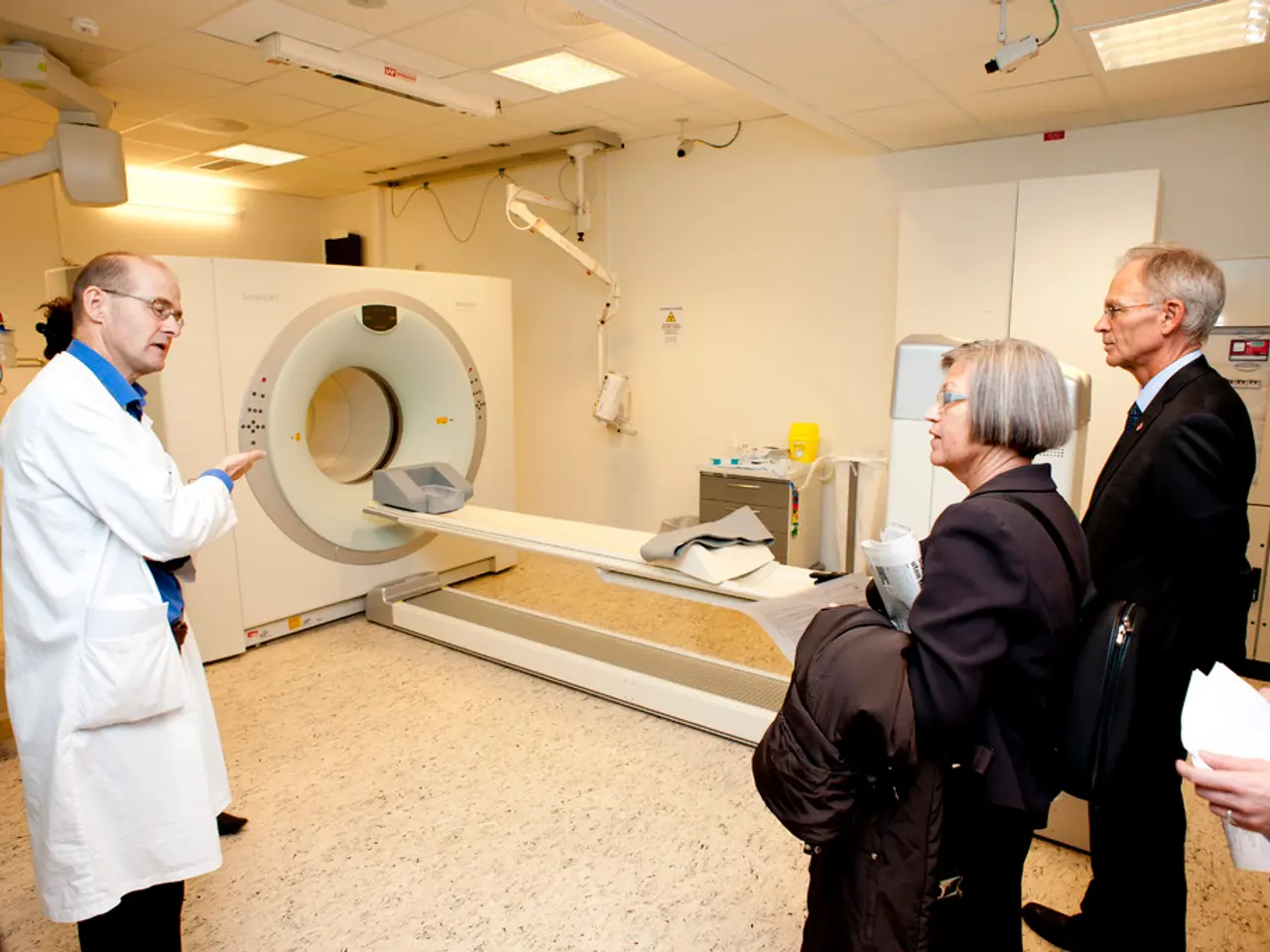Alleged Consultations Revealed: Federal authorities claim that a doctor in Delaware prescribed genetic tests for cancer valued at $1.7 million, yet no patient encounters were documented.
In a recent development, Dr. Shayasta S. Mufti, a board-certified internist based in Delaware, is facing a federal civil lawsuit under the False Claims Act. The lawsuit alleges that Dr. Mufti knowingly submitted false or fraudulent claims to Medicare for medically unnecessary genetic laboratory tests between April 2019 and November 2019 [1][3].
The U.S. government's complaint states that Dr. Mufti referred more than 100 Medicare beneficiaries for genetic tests that were not medically necessary, often without an established medical relationship, proper examination, or use of the test results to manage the beneficiaries' medical conditions [1][3]. The tests, which were costly, led to hundreds of false claims being submitted to Medicare, resulting in the programme being billed $1.7 million and paying out $565,000 [1][3].
The allegations against Dr. Mufti involve her involvement with the telemedicine company MySpecialistMD, from which she received about $15,000 for consultations, typically $25 per “purported consultation” [5]. It is claimed that she ordered these tests without a legitimate patient relationship, often based on brief telemedicine consultations or no consultation at all [1][3].
Dr. Mufti's actions are said to have violated the critical safeguards in the Medicare system, putting taxpayer dollars at risk and undermining the trust placed in health care professionals [1][3]. This case is part of the broader 2025 National Health Care Fraud Takedown, aimed at combating schemes involving medically unnecessary genetic testing and other types of Medicare fraud [2][5].
Notably, the investigation and charges against Dr. Mufti are not limited to criminal charges, but also include allegations of violating the Medicare program’s requirements that prohibit knowingly submitting false or fraudulent claims for payment and require that diagnostic tests like genetic screening be ordered only by physicians treating the patient for a specific medical problem and using the results in patient care [1][3][5].
In 2022, Landmark Diagnostics, a laboratory that allegedly carried out three-quarters of the genetic tests ordered by Dr. Mufti, pleaded guilty in federal court to health care fraud, taking kickbacks, and money laundering in various states, including Pennsylvania, New Jersey, and Florida [6]. Sandra Jackson, a nurse practitioner who now lives in Florida, has also agreed to pay the government $38,000 to resolve allegations that she violated the False Claims Act by ordering genetic tests and equipment for more than 300 Medicare recipients she never treated, evaluated, or met personally [4].
This incident serves as a reminder of the importance of upholding the integrity of the Medicare system and the need for healthcare professionals to adhere to the rules and regulations governing patient care and billing practices. The investigation into Dr. Mufti's actions remains active, and no further information regarding potential criminal charges has been disclosed at this time [2][5].
- The actions of Dr. Shayasta S. Mufti, who allegedly submitted false claims to Medicare for medically unnecessary genetic tests, could have serious repercussions for the health-and-wellness sector, potentially causing distrust in medical professionals and jeopardizing the financial stability of health programs like Medicare.
- The false claims submitted to Medicare for genetics lab tests, as part of a wider scheme involving medically unnecessary genetic testing, raise concerns about the ethics of the health industry, as these practices not only misuse Medicare funds but also potentially compromise the quality of health-and-wellness care and medical-condition management for beneficiaries.




